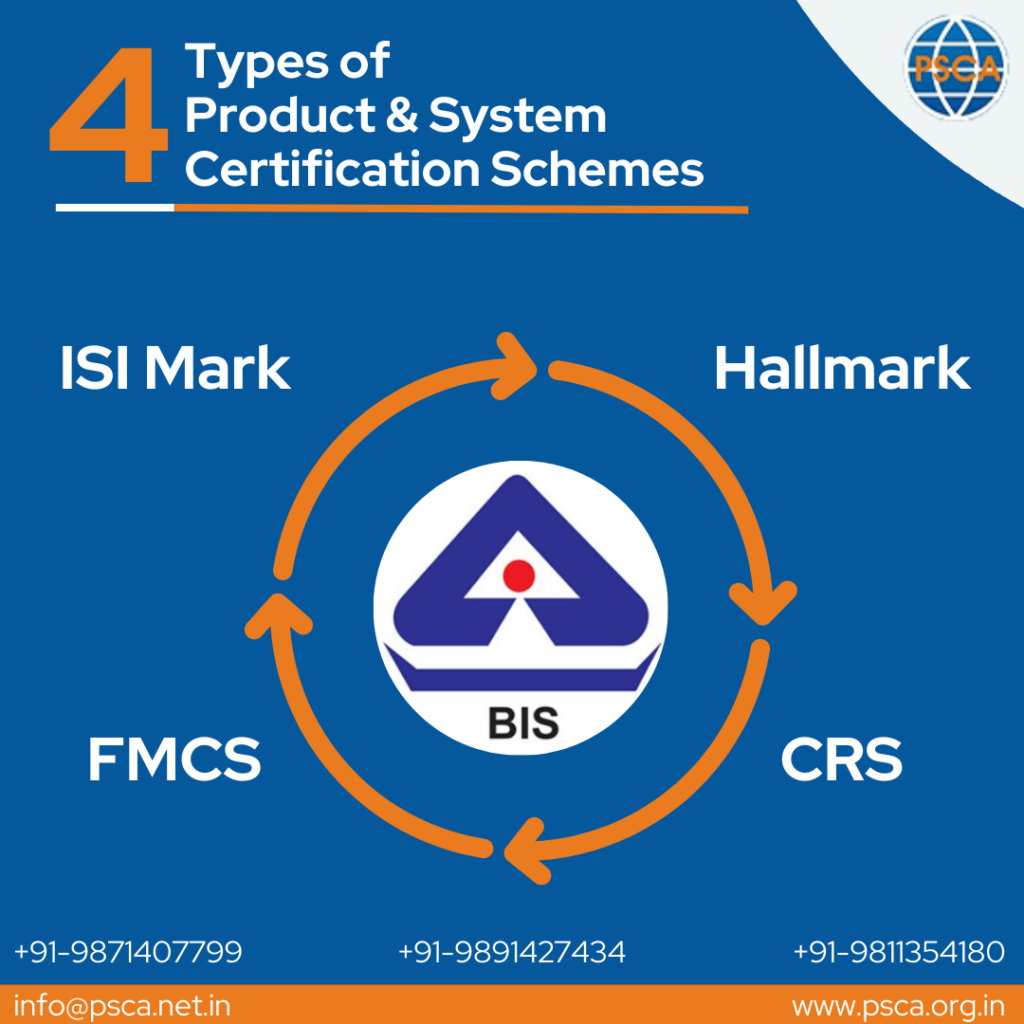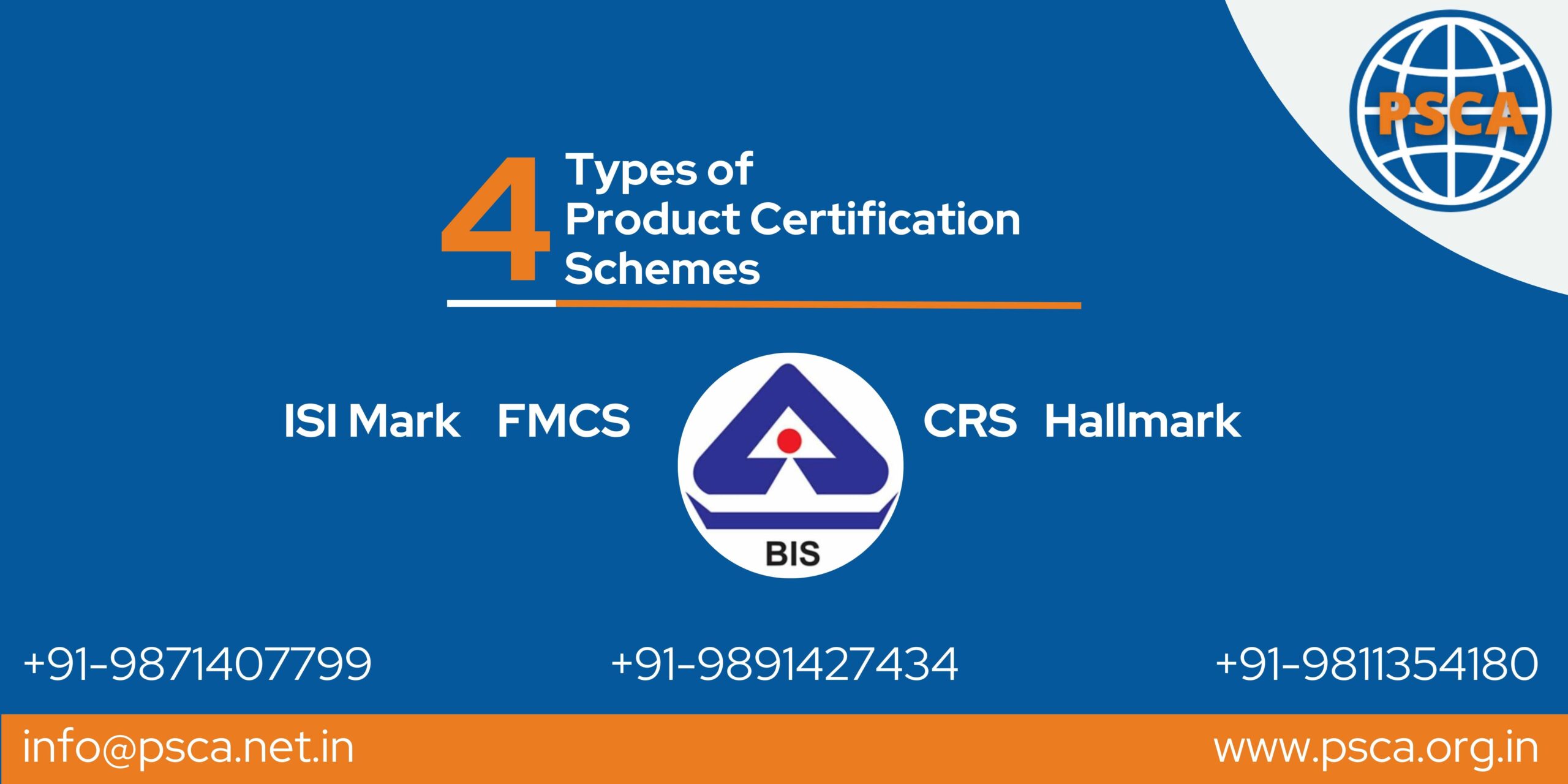Introduction
BIS Certification promotes the protection of customers while also providing the manufacturer with a legal benefit, especially if the product falls under the purview of BIS.
A BIS licence is required to achieve legal benefits, competitive advantages, product quality, and easy market access. BIS certification is required for the 346+ products on the list, which is constantly growing.
Did You Know?
Failing to obtain BIS certification for the mandatory products, can lead to a two-year ban, a fine in Lakhs, or both.
Examples of some products which fall in the mandatory category are,
- Foot Wear
- Refrigerator Gadget
- Paper
- Gold
- Helmets for Two Wheelers
- Steel and Steel Products
- Malleable Iron Shots and Grits
- Press Tool Punches
- Air Conditioner and its related parts
- Woven Sacks
- Cattle Feeds
- Rubber Hose for LPG (Liquified Petroleum Gas)
- Reflectors For Bicycles

BIS Process – What Exactly is it?
The Bureau of Indian Standards is a regulatory body that oversees three types of certification schemes: ISI, FMCS, CRS and Hallmark. The items certified under the ISI and FMCS schemes are very similar; however, CRS is only applicable to electrical products and Hallmark pertains to. Let’s get a better understanding of the BIS certification procedure. Read further.
ISI Mark: The BIS initiated a product certification process. The ISI mark certifies that your product has met the required criteria. ISI certification is required for specific products, without which you would not be able to sell the product in India. Simply put, it ensures high-quality products as well as customer safety.
The Process
- Fill in the application form.
- Post this, a factory inspection is performed to evaluate the manufacturing infrastructure, production process, quality control, and testing capabilities.
- A product sample is obtained during an inspection for testing in a third-party laboratory.
- To review, the product sample’s test reports are used.
- Finally, if your product meets the standards, you receive the certificate.
FMCS: The BIS FMCS license is issued to international manufacturers in order for them to comply with Indian standards. The firm must complete the BIS certification process before selling specific products in the Indian market. Otherwise, the firm will be unable to sell its products in the Indian market.
It is important to know that FMCS certification is an extensive process that includes on-site operations such as visiting the client’s destination location, collecting samples, delivering the sample product to India, and so on.
The Process?
- Fill in the application form completely, accompanied by the necessary documentation.
- A charge has to be paid in addition to the form submission, and a factory inspection is then performed to validate the manufacturing and testing infrastructure.
- During a factory inspection, a product sample is drawn for independent testing.
- The registration process begins once the inspection and independent test report confirm that the product meets BIS criteria.
- Before a license is then granted, post which the applicant must pay the licence fee and the advance minimum marking charge.
- Following payment, the Agreement, Indemnity Bond, and a $10,000 (USD) Performance Bank Guarantee must be provided immediately after the license is granted.
- The FMCS certificate is then issued if the product complies with the BIS standards.
CRS: Under this scheme, electronic devices, whether imported or manufactured domestically, must meet BIS requirements. Following the examination and analysis of the samples, as well as the documentation for BIS registration, the product’s conformity will be issued.
Did You Know?
The Department of Electronics and Information Technology in India requires the mandatory certificate for 77 electronic devices, including audio and video, IT equipment, mobile phones, smart card readers, and other similar gadgets.
This is why any foreign manufacturer of these products must obtain a BIS licence in order to export their products to India.
The Process?
- On the BIS portal, the manufacturer’s profile has to be generated.
- For a BIS accredited laboratory, the Test Report Format (TRF) is generated.
- Following TRF generation, the lab uploads the report to the BIS portal under the client’s profile.
- Foreign candidates have to necessarily appoint an Authorized Indian Representative (AIR) and submit an affidavit and undertaking in accordance with Form A/B. While Indian applicants must provide an affidavit and undertaking in accordance with Format C.
- Furthermore, the online form is submitted along with the relevant documents and fees.
- The certificate is then provided based on testing, not on a factory inspection; as a result, the CRS certificate is authorized if the product meets the BIS (CRS) requirements.
Hallmarking: Hallmarking is the process of determining the quality of gold purchased by a consumer. Hallmarked gold confirms that the purity of the gold has been verified in accordance with the standards established by a government entity known as the Bureau of Indian Standards (BIS) and that you are paying the correct price for the purity and amount of gold you are acquiring.
The Objective
The hallmarking scheme is driven by two primary goals. They are intended to safeguard the public from adulteration and to compel manufacturers to maintain legal fineness/purity requirements in their gold.
The Process?
- Visit https://www.manakonline.in/MANAK/login in and click on the “Hallmarking”
- Click the link at the Manak Portal under the “Notification” section or click on the “For jeweller registration” tab
- The user gets redirected to the NSWS page where the user clicks on “All Approvals” then on “Central Approvals” in the dropdown
- On the “Approval and Registrations” page user can search for the keyword “Hallmark” in the search field provided at the top right-hand corner.
- After than, you go to the “Registration of jewellers for selling Hallmarked jeweller/artefacts” box and click on “Add To My Approvals”
- A Login page appears where you can log in using your credentials if you have already registered yourself on the portal otherwise register yourself by clicking on the “Register”
- After the user’s account has been verified kindly log in with the credentials. Then click on the My Dashboard link at the top right corner and click on “Apply Now”
- Then one has to enter CIN/LLPIN based on selection if the business entity is already incorporated. If the user is a “Sole Proprietorship” then validate button has to be clicked to proceed
- A form appears, which has to be filled appropriately and then submitted
- Then, the customer has to go to the “Registration of jewellers for selling Hallmarked Jewellery/artefacts” section in the left menu and fill the “User Details”
- After successful submission, a message of submitted successfully us displayed. Click on the “OK” button
Conclusion
Led by a team of ex-Directors, Dy. Directors of BIS (Bureau of Indian Standards) and DGM of a Fortune 500 company, PSCA is one of the fastest-growing standard certification & registration Advisors, providing advisory services to enterprises of all types and sizes across a wide range of product areas.
We offer one of the most comprehensive suites of consulting services, products, and training in the fields of Product Certification, Registration, Homologation, and more.
Have questions? Connect with us anywhere, on-call, via mail or via WhatsApp. We’ll revert back asap!
Blogs That You May Find Relevant

